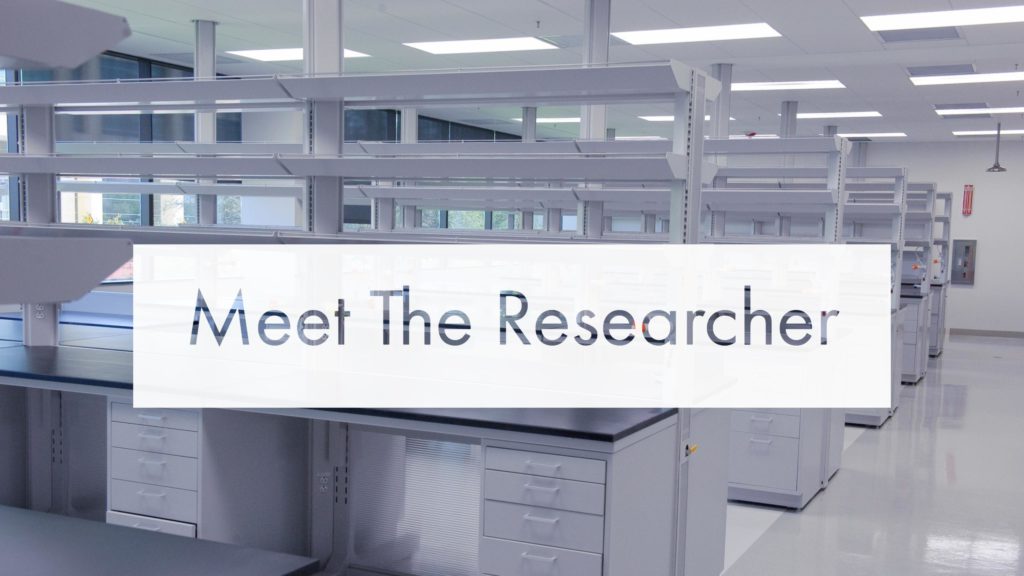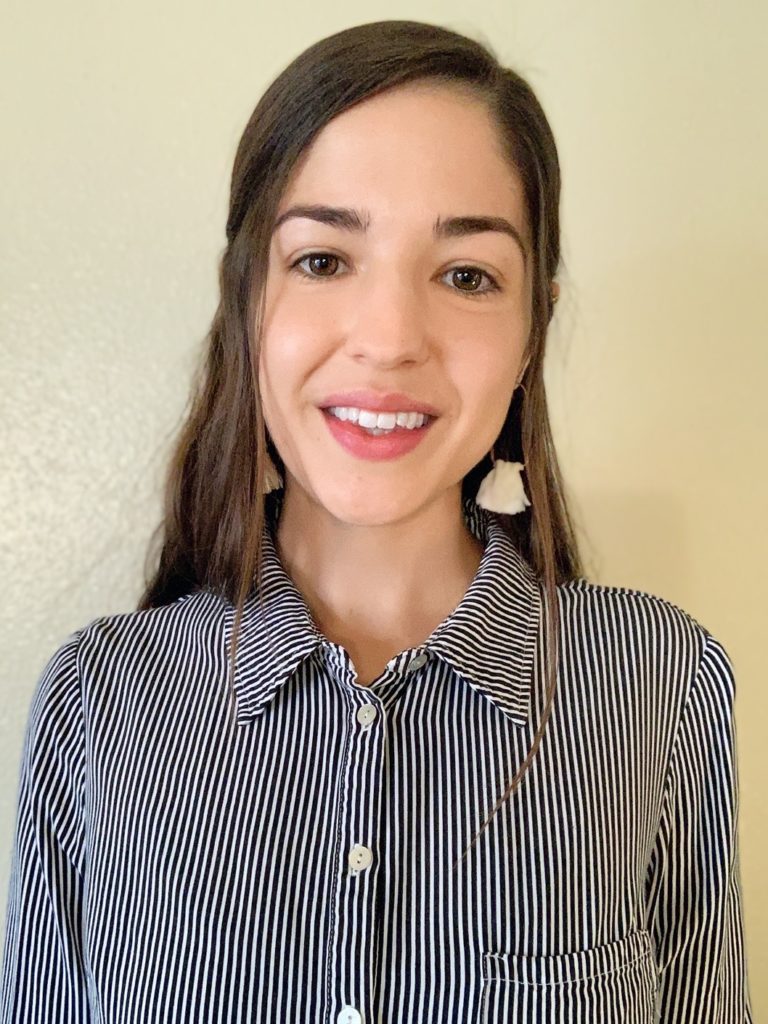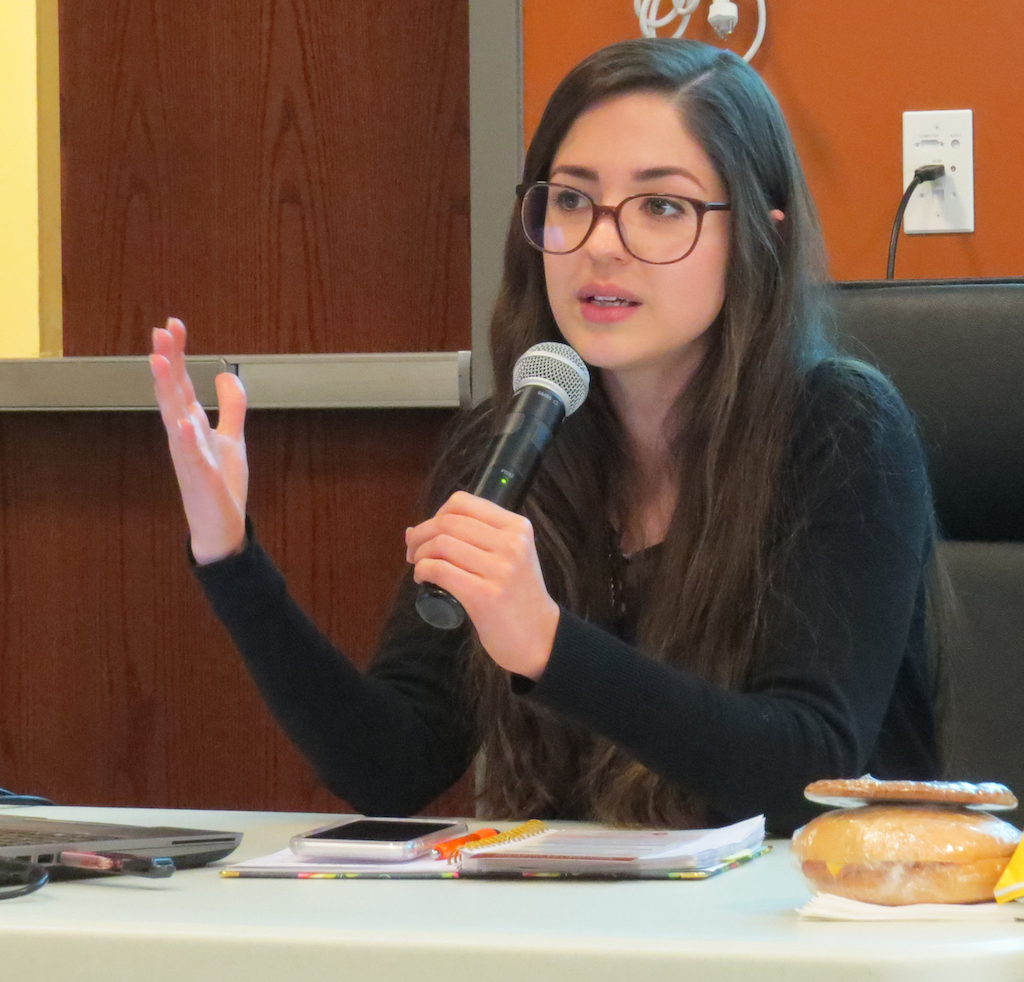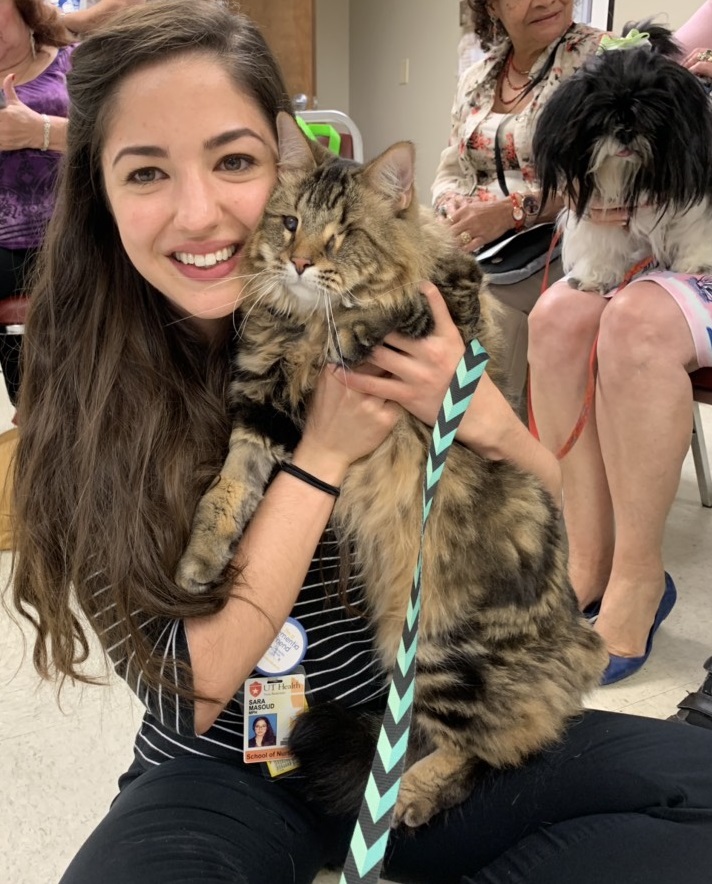Meet The Researcher: Sara Masoud Researches Family Caregivers and Persons Living with Dementia

 First year Translational Science doctoral student, Sara Masoud is passionate about employing authentic and meaningful community engagement to produce research that is relevant and translatable into practice. Her research is focused on family caregivers and persons living with dementia.
First year Translational Science doctoral student, Sara Masoud is passionate about employing authentic and meaningful community engagement to produce research that is relevant and translatable into practice. Her research is focused on family caregivers and persons living with dementia.
Her mentor is Dr. Carole White, who is a faculty member in the School of Nursing and Director of the Caring for the Caregiver program. The program aims to improve the quality of life for family caregivers and those they care for with evidence-based services, support, education and research with value on the caregiver’s health, skills, and resilience.
Specifically, Masoud is working with Dr. White on a project funded by the Patient Centered Outcomes Institute (PCORI) to identify priorities for dementia care research through collaboration with a diverse group of stakeholders including family caregivers, persons living with dementia, and health and social care professionals.
“I have learned so much about the value of including diverse perspectives to address research gaps as identified by the communities the research intends to support,” she said. “This project is timely as persons living with dementia have historically been discounted as potential collaborators for research. My involvement as key personnel on this project has solidified my belief that persons living with dementia can and should be supported to share their important perspectives in research that seeks to address their needs.”
In addition to her research, she serves as a coordinator of a Memory Café and lead of the Texas Memory Café Network. She hopes that the infrastructure of the growing Texas Memory Café Network will support other coordinators to provide high-quality and responsive social support for persons living with dementia and their families.
 “Memory Cafés are a globally replicated program that have supported families living with dementia around the world since the 1990s and yet formal evaluation of their impact has been limited,” she said.
“Memory Cafés are a globally replicated program that have supported families living with dementia around the world since the 1990s and yet formal evaluation of their impact has been limited,” she said.
Masoud is working to implement a study funded by an IIMS Small Projects Grant with Dr. Kylie Meyer and Dr. Carole White to evaluate the impact of Memory Cafés as a mechanism to support the social connectedness needs of persons living with dementia and family caregivers.
With the restrictions on social gatherings following COVID-19, Masoud has adapted their Memory Café to a virtual and bilingual format to continue supporting families living with dementia, including those who are monolingual Spanish-speakers.
“Our study will subsequently evaluate the impact of both virtual and in-person Memory Cafés on the socialization experiences of attendees,” she said. “This is timely as social isolation related to COVID-19 has created an even greater need to address the social connectedness needs of older adults.”
Masoud hopes that her work will encourage and support other researchers to include diverse stakeholder groups in their projects, especially individuals living with dementia and family caregivers.
“Our research is important because it advocates for the inclusion of persons living with dementia and family caregivers to be involved not only as participants but as collaborators in research. It is particularly important that our work involves adapting the research process to center around including the perspectives of persons living with dementia and family caregivers,” she said. “This practice, while important, rewarding, and greatly beneficial for representation of vulnerable communities in research, can be challenging and time-consuming.”
 She hopes to continue collaborating with community members and partnering organizations to address the needs of families living with dementia. She would like to expand her work to underrepresented and geographically marginalized communities in Texas who are seldom heard or involved as collaborators in research.
She hopes to continue collaborating with community members and partnering organizations to address the needs of families living with dementia. She would like to expand her work to underrepresented and geographically marginalized communities in Texas who are seldom heard or involved as collaborators in research.
Outside of work and school, she likes to spend most of her time outdoors in her vegetable garden, jogging in her neighborhood or the nature trails of San Antonio, and walking her dog at the park. She is also passionate about connecting with her Palestinian heritage through cooking and baking. She volunteers for a Palestinian solidarity group and various women’s rights organizations.
 This article was written by Charlotte Anthony, marketing specialist at the Graduate School of Biomedical Sciences at UT Health San Antonio. This article is part of the “Meet The Researcher” series which showcases researchers at the Graduate School of Biomedical Sciences at University of Texas Health Science Center San Antonio.
This article was written by Charlotte Anthony, marketing specialist at the Graduate School of Biomedical Sciences at UT Health San Antonio. This article is part of the “Meet The Researcher” series which showcases researchers at the Graduate School of Biomedical Sciences at University of Texas Health Science Center San Antonio.
